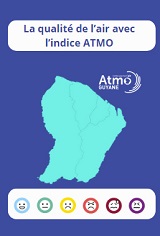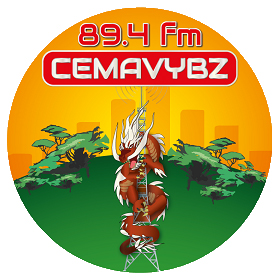Blada.com
vendredi 11 avril
Boîtes aux lettres
Courrier des lecteurs
Petites annonces
Emploi / Formation
Covoiturage
Infos citoyennes
Infos citoyennes
18/02/22
Émulation scientifique sur les rives du Mahury
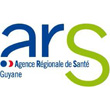
Depuis début 2020, le Pr Nacher anime un séminaire d’écriture scientifique, quatre fois par an. Le premier de l’année 2020 se termine aujourd’hui. Il accueille de nombreux internes plongés dans leur thèse, des étudiants de l’école doctorale de Guyane, des chercheurs chevronnés venus chercher une ambiance studieuse et, pour la première fois, cinq chercheurs venus du Suriname. Alors que le chantier est sur les rails, cette initiative est de nature à renforcer l’universitarisation de la santé en Guyane, attirer les internes et renforcer la coopération avec nos voisins.
George Sand écrivait en contemplant le parc du Domaine de Nohant ; Flaubert en regardant s’écouler la Seine en Normandie. En Guyane, on peut rédiger un article sur la leptospirose ou sur l’imprégnation au mercure des orpailleurs clandestins, une thèse sur les bilans de santé des migrants, les yeux rivés sur le Mahury. C’est sur une terrasse en aplomb du fleuve que le Pr Mathieu Nacher (centre d’investigations cliniques, CHC) convie, quatre fois par an, les médecins, les chercheurs, les doctorants, les internes à un séminaire d’écriture scientifique. Le premier de l’année 2022 se termine aujourd’hui. Pour la première fois, il accueillait cinq chercheurs du Suriname, invités par l’Agence Régionale de Santé.
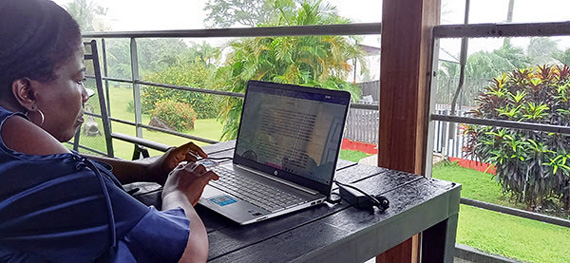 Ce séminaire d’écriture scientifique est né au début de l’épidémie de Covid-19, relate le Pr Nacher. Il se déroule sur quatre jours : une demi-journée de théorie. « C’est tout ce que vous avez toujours voulu savoir sur l’écriture scientifique, une sorte de boîte à outils. » Ensuite, la vingtaine de participants commencent à écrire, échangent entre eux, demandent son avis au Pr Nacher. L’émulation se fait. L’ambiance studieuse, le calme et les conseils facilitent la rédaction. « Il y a un phénomène d’aspiration quand tout le monde travaille. Le soir, il faut un pied-de-biche pour arracher certains à leur bureau », s’amuse-t-il.
Ce séminaire d’écriture scientifique est né au début de l’épidémie de Covid-19, relate le Pr Nacher. Il se déroule sur quatre jours : une demi-journée de théorie. « C’est tout ce que vous avez toujours voulu savoir sur l’écriture scientifique, une sorte de boîte à outils. » Ensuite, la vingtaine de participants commencent à écrire, échangent entre eux, demandent son avis au Pr Nacher. L’émulation se fait. L’ambiance studieuse, le calme et les conseils facilitent la rédaction. « Il y a un phénomène d’aspiration quand tout le monde travaille. Le soir, il faut un pied-de-biche pour arracher certains à leur bureau », s’amuse-t-il.
C’est ce que constate le Dr Paul Le Turnier (Umit, CHC). Rompu à la rédaction d’articles, il est venu en terminer un sur la leptospirose, tiré d’une thèse qu’il a dirigée. « Je suis avant tout venu pour les conseils du Pr Nacher. C’est aussi un tunnel de travail. On peut se plonger dans la rédaction, dans un cadre très studieux, d’autant que je n’ai pas de bureau à l’hôpital. Je profite aussi de la présence des autres, comme le Pr Loïc Epelboin, avec qui j’ai des sujets en commun. J’ai quasiment terminé l’article issu de la thèse et j’ai pu avancer sur ma thèse de science, elle aussi sur la leptospirose. »
Ce séminaire accueille autant des néophytes de l’écriture scientifique que des chercheurs rompus à l’exercice, des internes ou des étudiants de l’école doctorale de Guyane. Les sujets de santé sont majoritaires mais ne sont pas seuls. « Il y a eu des travaux sur l’intelligence artificielle, les satellites, les grenouilles… », se souvient le Pr Nacher. Pour la première fois, cinq chercheurs venus du Suriname y participent : un urgentiste, un infectiologue, mais aussi une musicologue ou un spécialiste des sciences de l’éducation. « C’est quelque chose qu’on a évoqué lors d’une visite à Paramaribo début décembre. On a sollicité l’hôpital académique (AZP), ainsi que le chancelier de l’université. Leur venue est financée par l’ARS. »
C’est le cas de Liesbeth Peroti, la spécialiste de la musique. « C’est l’université de Paramaribo qui m’a parlé de cette possibilité, car je suis en train d’écrire une thèse. J’avais besoin de conseils sur l’écriture. Il nous explique combien il faut se concentrer sur la lecture d’articles scientifiques, sur l’écriture. Il nous donne les outils pour avoir une écriture plus académique. » Alors que le projet de CHU est sur les rails, ce séminaire est de nature à renforcer l’universitarisation de la santé en Guyane, à attirer les internes et à améliorer la coopération avec nos voisins. Le tout en contemplant le Mahury.
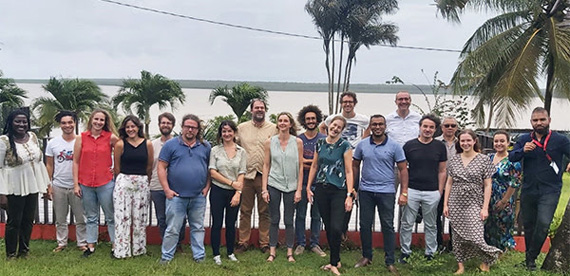
« J’aurai bien avancé sur ma thèse »
Comme d’autres internes, Maxime Ransay-Colle a profité de ce séminaire pour travailler sa thèse de médecine sur les bilans de santé que la Croix-Rouge française propose aux migrants primo-arrivants.
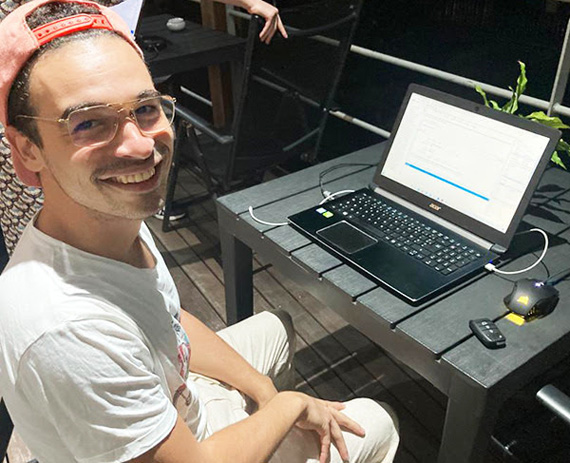 « J’ai entendu parler de ces séminaires par ma cheffe à la Croix-Rouge : le Dr Florence Huber. J’ai contacté le centre d’investigations cliniques (CIC) pour demander des informations. Ils m’ont demandé de candidater. J’ai rédigé une lettre de motivation. Avant ce séminaire, j’ai participé à celui sur le recueil des données et l’analyse statistique. Cela permet d’effectuer un cycle complet de recherche, avec un encadrement universitaire, ce qui n’est pas si courant. En arrivant au séminaire d’écriture, j’étais donc déjà convaincu par le séminaire sur les statistiques. Je ne suis pas déçu ! Après la matinée théorique du Pr Nacher, on a commencé le travail en autonomie. On peut demander conseil quand on veut, avoir des retours critiques. Il nous déculpabilise beaucoup ; ça m’a libéré dans l’écriture. On se lève, on lui montre notre travail, il nous livre ses commentaires. Quand on échange par mail, ça peut prendre une semaine pour avoir un retour. C’est la plus-value. On a l’habitude de travailler seul, avec un effet tunnel : on se fait relire à la fin et, parfois, c’est à ce moment-là qu’on découvre qu’il y a d’autres recherches à faire. Jusque-là, je n’avais pas fait grand-chose. J’avais une ébauche d’introduction, de méthode et de résultats. Depuis le début du séminaire, j’ai pu les valider et commencer le travail sur la discussion. Je n’arriverai pas à finir d’ici à la fin de la semaine, mais j’aurai bien avancé. » Maxime Ransay-Colle espère soumettre sa thèse dans trois semaines.
« J’ai entendu parler de ces séminaires par ma cheffe à la Croix-Rouge : le Dr Florence Huber. J’ai contacté le centre d’investigations cliniques (CIC) pour demander des informations. Ils m’ont demandé de candidater. J’ai rédigé une lettre de motivation. Avant ce séminaire, j’ai participé à celui sur le recueil des données et l’analyse statistique. Cela permet d’effectuer un cycle complet de recherche, avec un encadrement universitaire, ce qui n’est pas si courant. En arrivant au séminaire d’écriture, j’étais donc déjà convaincu par le séminaire sur les statistiques. Je ne suis pas déçu ! Après la matinée théorique du Pr Nacher, on a commencé le travail en autonomie. On peut demander conseil quand on veut, avoir des retours critiques. Il nous déculpabilise beaucoup ; ça m’a libéré dans l’écriture. On se lève, on lui montre notre travail, il nous livre ses commentaires. Quand on échange par mail, ça peut prendre une semaine pour avoir un retour. C’est la plus-value. On a l’habitude de travailler seul, avec un effet tunnel : on se fait relire à la fin et, parfois, c’est à ce moment-là qu’on découvre qu’il y a d’autres recherches à faire. Jusque-là, je n’avais pas fait grand-chose. J’avais une ébauche d’introduction, de méthode et de résultats. Depuis le début du séminaire, j’ai pu les valider et commencer le travail sur la discussion. Je n’arriverai pas à finir d’ici à la fin de la semaine, mais j’aurai bien avancé. » Maxime Ransay-Colle espère soumettre sa thèse dans trois semaines.
Cet article est issu de la Lettre pro de l’Agence régionale de santé. Vous pouvez vous y abonner en remplissant le formulaire suivant : https://forms.sbc28.com/5a8bed50b85b5350ef1cd117/t13M7zUZQi2XMq5E3DdnhQ/0WQoeDwjRXqJblCpKbLDzA/form.html
 Since the beginning of 2020, Professor Nacher has been leading a scientific writing seminar four times a year. The first of the year 2020 ends today. It welcomes many interns immersed in their thesis, students from the doctoral school of French Guiana, experienced researchers who have come to seek a studious atmosphere and, for the first time, five researchers from Suriname. While the project is on track, this initiative is likely to strengthen the academicization of health in French Guiana, attract interns and strengthen cooperation with our neighbors.
Since the beginning of 2020, Professor Nacher has been leading a scientific writing seminar four times a year. The first of the year 2020 ends today. It welcomes many interns immersed in their thesis, students from the doctoral school of French Guiana, experienced researchers who have come to seek a studious atmosphere and, for the first time, five researchers from Suriname. While the project is on track, this initiative is likely to strengthen the academicization of health in French Guiana, attract interns and strengthen cooperation with our neighbors.
George Sand wrote while contemplating the park of the Domaine de Nohant; Flaubert watching the Seine flow in Normandy. In French Guiana, one can write an article on leptospirosis or on the mercury impregnation of clandestine gold washers, a thesis on the health checks of migrants, with their eyes riveted on the Mahury. It is on a terrace overlooking the river that Professor Mathieu Nacher (clinical investigation center, CHC) invites doctors, researchers, doctoral students and interns to a scientific writing seminar four times a year. The first of the year 2022 ends today. For the first time, it welcomed five researchers from Suriname, invited by the Regional Health Agency.
 This scientific writing seminar was born at the start of the Covid-19 epidemic, reports Professor Nacher. It takes place over four days: a half-day of theory. “This is everything you ever wanted to know about scientific writing, a kind of toolkit." Then, the twenty or so participants begin to write, talk to each other, ask Professor Nacher for his opinion. Emulation takes place. The studious atmosphere, calm and advice make writing easier. “There is a phenomenon of aspiration when everyone is working. In the evening, you need a crowbar to snatch some people from their desks, ” he laughs.
This scientific writing seminar was born at the start of the Covid-19 epidemic, reports Professor Nacher. It takes place over four days: a half-day of theory. “This is everything you ever wanted to know about scientific writing, a kind of toolkit." Then, the twenty or so participants begin to write, talk to each other, ask Professor Nacher for his opinion. Emulation takes place. The studious atmosphere, calm and advice make writing easier. “There is a phenomenon of aspiration when everyone is working. In the evening, you need a crowbar to snatch some people from their desks, ” he laughs.
This is what Dr. Paul Le Turnier (Umit, CHC) observes. Experienced in writing articles, he came to finish one on leptospirosis, taken from a thesis he supervised. “I came above all for the advice of Professor Nacher. It is also a work tunnel. You can immerse yourself in writing, in a very studious setting, especially since I don't have an office at the hospital. I also take advantage of the presence of others, such as Professor Loïc Epelboin, with whom I have subjects in common. I almost finished the article resulting from the thesis and I was able to progress on my science thesis, also on leptospirosis."
This seminar welcomes neophytes to scientific writing as well as experienced researchers, interns or students from the doctoral school of French Guiana. Health subjects are in the majority but are not alone. "There has been work on artificial intelligence, satellites, frogs...", recalls Professor Nacher. For the first time, five researchers from Suriname are taking part: an emergency doctor, an infectious disease specialist, but also a musicologist or a specialist in educational sciences. "It's something we talked about during a visit to Paramaribo in early December. We asked the academic hospital (AZP), as well as the chancellor of the university. Their visit is financed by the ARS."
This is the case of Liesbeth Peroti, the music specialist. “It was the University of Paramaribo that told me about this possibility, because I am writing a thesis. I needed writing advice. He explains to us how much we must concentrate on reading scientific articles, on writing. It gives us the tools to have a more academic writing." While the CHU project is on track, this seminar is likely to strengthen the academicization of health in French Guiana, to attract interns and to improve cooperation with our neighbours. All while contemplating the Mahury.
“I will have made good progress on my thesis”
Like other interns, Maxime Ransay-Colle took advantage of this seminar to work on his medical thesis on the health checks that the French Red Cross offers to newly arrived migrants.
 “I heard about these seminars from my head at the Red Cross: Dr. Florence Huber. I contacted the clinical investigation center (CIC) to request information. They asked me to apply. I wrote a cover letter. Before this seminar, I participated in the one on data collection and statistical analysis. This makes it possible to carry out a full cycle of research, with university supervision, which is not so common. When I arrived at the writing seminar, I was therefore already convinced by the seminar on statistics. I am not disappointed ! After Pr Nacher's theoretical morning, we started working independently. We can ask for advice when we want, get critical feedback. It relieves us a lot of guilt; It freed me to write. We get up, we show him our work, he gives us his comments. When we exchange by email, it can take a week to get a return. It is the added value. We are used to working alone, with a tunnel effect: we are proofread at the end and, sometimes, that is when we discover that there is other research to be done. So far, I hadn't done much. I had a draft introduction, method and results. Since the beginning of the seminar, I have been able to validate them and start working on the discussion. I won't be able to finish by the end of the week, but I will have made good progress." Maxime Ransay-Colle hopes to submit his thesis in three weeks.
“I heard about these seminars from my head at the Red Cross: Dr. Florence Huber. I contacted the clinical investigation center (CIC) to request information. They asked me to apply. I wrote a cover letter. Before this seminar, I participated in the one on data collection and statistical analysis. This makes it possible to carry out a full cycle of research, with university supervision, which is not so common. When I arrived at the writing seminar, I was therefore already convinced by the seminar on statistics. I am not disappointed ! After Pr Nacher's theoretical morning, we started working independently. We can ask for advice when we want, get critical feedback. It relieves us a lot of guilt; It freed me to write. We get up, we show him our work, he gives us his comments. When we exchange by email, it can take a week to get a return. It is the added value. We are used to working alone, with a tunnel effect: we are proofread at the end and, sometimes, that is when we discover that there is other research to be done. So far, I hadn't done much. I had a draft introduction, method and results. Since the beginning of the seminar, I have been able to validate them and start working on the discussion. I won't be able to finish by the end of the week, but I will have made good progress." Maxime Ransay-Colle hopes to submit his thesis in three weeks.
This article is from the Professional Letter of the Regional Health Agency. You can subscribe to it by filling out the following form: https://forms.sbc28.com/5a8bed50b85b5350ef1cd117/t13M7zUZQi2XMq5E3DdnhQ/0WQoeDwjRXqJblCpKbLDzA/form.html
Raccourcis
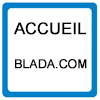
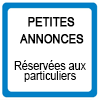
passer une petite annonce
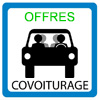
passer une annonce de covoiturage
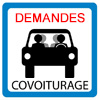
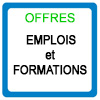
passer une annonce d’emploi
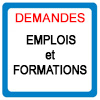
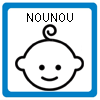
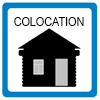
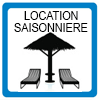
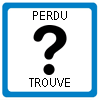
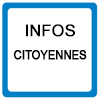
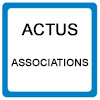
associations, postez vos actualités
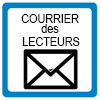
participez au courrier des lecteurs
La Guyane c’est ici
La qualité de l’Air avec
ATMO
Photothèque

Lancements 2022
Vol 259 Ariane 5



